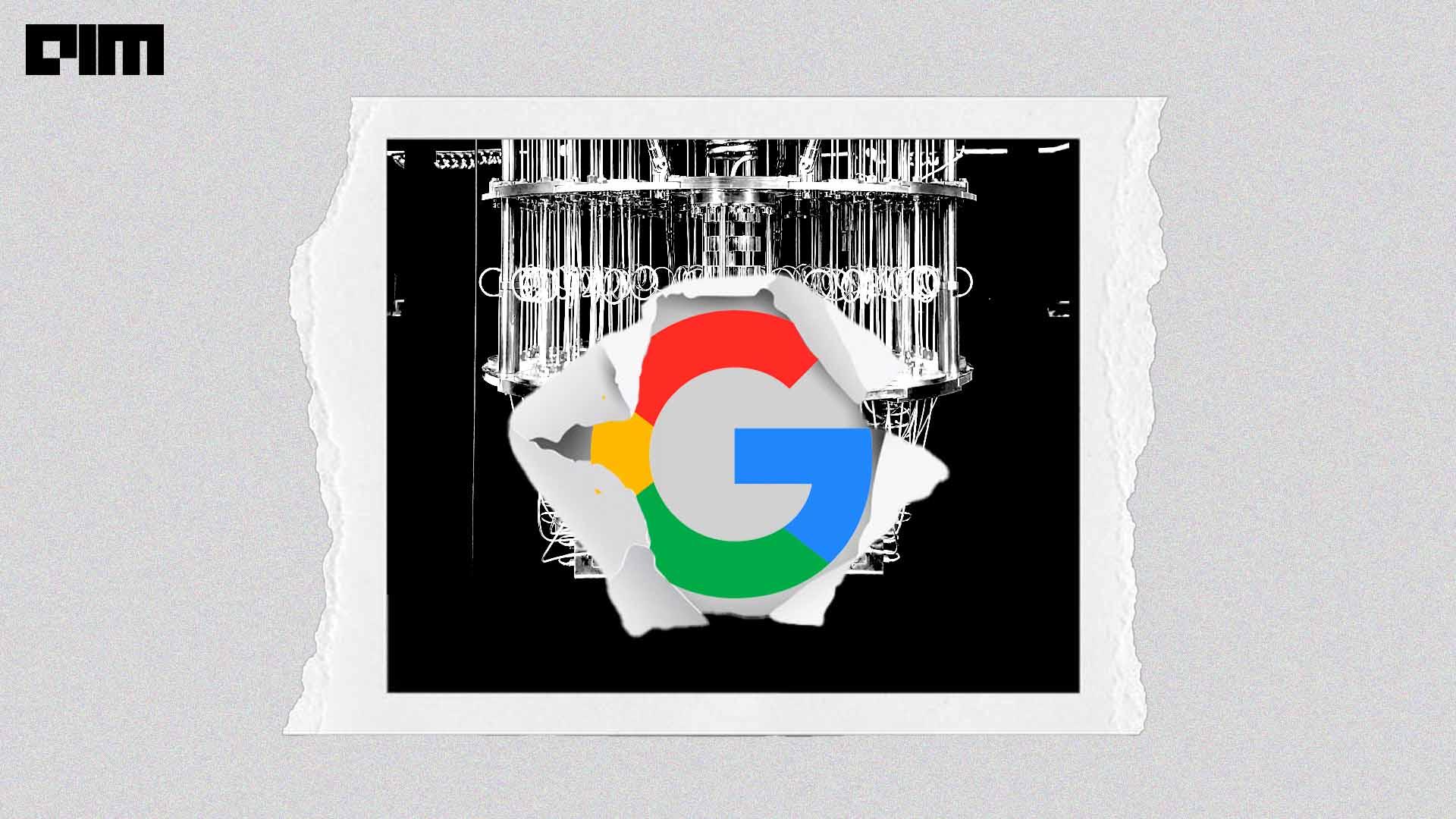|
Listen to this story
|
We still have to come to a conclusion if quantum computing is ever going to be useful or is it just a failed cause. While this happens, big-tech companies are pushing towards achieving quantum supremacy, without realising if it would be beneficial for speeding up systems beyond classical computers or not.
Along these lines, Google has made a huge claim. The company recently announced that it has created a quantum computer that is almost 47 years ahead of its competitors as it performs calculations within seconds that top-performing supercomputers take years to perform. Google is ready to say that they are over classical computing and are ready to move to quantum computing as the new processor has 70 operational qubits.
Sebastian Weidt from Universal Quantum said, “This is a very nice demonstration of quantum advantage. While a great achievement academically, the algorithm used does not really have real world practical applications though.” It highlights how we need to get to the utility of quantum computing, where the thousands of qubits actually deliver value to society.

History of tall claims
The past hasn’t been great for Google and quantum computing – a history of tall claims. In a declaration made four years ago, Google asserted that it had become “quantum supremacy,” a pivotal milestone indicating that quantum computers had surpassed their conventional counterparts.
At that time, the company claimed that its Sycamore supercomputer performs abstruse calculations in 200 seconds, that others would do in 10,000 years. The company had also claimed its supremacy back from IBM by saying that it had a working 72-qubit processor in 2018, when IBM had a 50-qubit processor.
During that period, Google faced opposition from competitors who contended that the disparity between their machine and traditional supercomputers was being exaggerated. IBM called out Google’s claim saying that the claim of doing something that classical computers can’t is still unmatched.
Now, Sergio Boixo, the principal scientist of Google Quantum AI, acknowledged in a written communication that the Google team was aware that their advantage may not remain sustainable for an extended period. “In our 2019 publication, we stated that classical algorithms would make advancements,” Boixo explained. However, he emphasised that they do not believe this classical methodology can match the progress of quantum circuits in 2022 and the years ahead.
Realising the quantum dream
Google is supposedly making this claim come true now. In April, Google published another research paper titled “Phase Transition in Random Circuit Sampling” presenting a more advanced quantum device, intended to settle the ongoing debate. Comparing to the 2019 Sycamore that consisted of 53 qubits, the fundamental units of quantum computers, the latest-generation device incorporates 70 qubits.
In the research paper co-authored by Google Quantum AI and its partners, the company’s AI division has announced positive outcomes from their experimental endeavours in Random Circuit Sampling (RCS). The authors highlight RCS as the most promising candidate for demonstrating capabilities beyond classical systems, as it maximises the propagation of quantum correlation at high speeds.

To elaborate, RCS involves randomly selecting gates within a defined and efficient quantum circuit, which generates samples based on the resulting distribution of outputs. Employing this methodology enabled the Google team to discern significant phases in the conducted experiments, arising from the interplay between quantum dynamics phenomena and noise.
Although the recent experiments conducted by Google Quantum AI mark a significant advancement in the field of quantum computing, the team acknowledges that further efforts are necessary. In their paper, the team states, “Despite the accomplishments attained thus far with RCS, the identification of practical applications for near-term noisy quantum processors continues to present a significant challenge.”
Catching up
Google is not the only one who is in the quantum race though. IBM, the first name that pops in the, is possibly miles ahead. But the other tech-giant, Microsoft, has been making big claims about quantum supremacy as well.
Microsoft recently shared its roadmap for building a quantum supercomputer. In the virtual event, Azure Quantum: Accelerating Scientific Discovery, Satya Nadella said the company’s goal is to make the discovery quicker. For this, the company has announced its roadmap for building one using the topological qubits, which the company has been working on for some years now.
Krysta Svore, Microsoft’s VP of advanced quantum development, told TechCrunch that even though there are a lot of milestones ahead, it will take less than a decade for the company to build its quantum supercomputer, which would be able to perform one million quantum operations per second.
Moreover, last year Microsoft made a major breakthrough in quantum computing. Researchers developed a new type of Majorana-based qubit, which is a fundamental component of quantum supercomputers. These qubits are more stable and easier to scale up resulting in the need for fewer of them.
Clearly, the road ahead for quantum is still a long one. For the big-tech, it comes with competition. Everyone can keep making claims and combining qubits, but Google should possibly start making use of its quantum technology, instead of comparing it with others, and claim it supremacy then.



















































































